#Mughal emperors
Explore tagged Tumblr posts
Text
شہنشاہ اکبر کی عظیم فتوحات

مغل بادشاہ شہنشاہ اکبر نے ہمسایہ ریاستوں پر حملے کر کے انہیں اپنی سلطنت میں شامل کر لیا۔ فتوحات کے بعد شہنشاہ ا کبر نے اپنی رعایا سے فیاضانہ سلوک کیا۔ گونڈوں کی ملکہ ورگاوتی کو شکست دینے اور اس کے خزانہ پر قبضہ کرنے کے بعد شہنشاہ اکبر نے چتوڑ کی طرف توجہ کی۔ جونہی اکبر اپنی فوجیں لے کر چتوڑ کی طرف روانہ ہوا، چتوڑ کا رانا ادوے سنگھ وہاں سے بھاگ نکلا۔ اس پر جمیل راٹھور نے چتوڑ کی حفاظت کا ذمہ لیا۔ شہنشاہ اکبر کی تمام توپیں چتوڑ کے قلعہ کو فتح کرنے میں ناکام رہیں۔ ایک دن اکبر نے دیکھا کہ ایک پرشکوہ انسان ان شگافوں کی مرمت کرا رہا ہے جو گولہ باری کی وجہ سے قلعہ میں پیدا ہو گئے تھے۔ اکبر نے شست لگائی، پر شکوہ انسان زمین پر تھا۔ تھوڑی دیر بعد شہر کے بعض حصوں سے آگ کے شعلے اُٹھتے دکھائی دیئے۔
راجہ بھگوان داس نے بتایا کہ جوہر کی رسم ادا ہو رہی ہے۔ معلوم ہوا کہ اکبر نے جس شخص کا نشانہ کیا تھا وہ جمیل راٹھور تھا۔ چتوڑ کے لئے راجپوت سپاہیوں نے بہادری سے لڑنا شروع کیا۔ مرد اور عورتیں ایک ہی صف میں حملہ آوروں کا مقابلہ کر رہی تھیں۔ آٹھ ہزار بہادر راجپوت چتوڑ کی حفاظت میں کام آتے۔ اکبر پر وہی وحشت سوار ہوئی جو کبھی سکندر یونانی کو گھیر لیتی تھی۔ اکبر کے حکم سے چتوڑ میں قتل عام کیا گیا۔ راجپوتوں کی بہادری سے اکبر اس قدر متاثر ہوا کہ اس نے جمیل اور اس کے نوجوان بیٹے کے بت بنوا کر دہلی میں نصب کرائے۔ اکبر اپنی سلطنت کو ایک سمندر سے دوسرے سمندر تک پھیلانا چاہتا تھا۔ اب اس نے مغرب کا رخ کیا۔ سمندر اور اس کی سلطنت کے درمیان گجرات حائل تھا۔
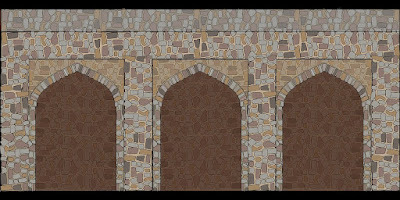
گجرات کی راجد ھانی احمد آباد تھی۔ اب اکبر گجرات کی طرف روانہ ہوا۔ گجرات پر قبضہ کرنے میں اُسے زیادہ مشکلات کا سامنا نہیں کرتا پڑا۔ اکبر نے پہلی مرتبہ اس سمندر کو دیکھا جو ہندوستان اور یورپ کو ملاتا ہے۔ اس کے ذہن میں مغل بحریہ بنانے کا خیال نہ آیا۔ اکبر سمندر کی موجوں کو گن رہا تھا کہ ابراہیم حسین میرزا نے سرنال میں بغاوت کر دی۔ اس بغاوت کو دبانے اور میرزا کو شکست دینے کے بعد اکبر نے سورت کی بندر گاہ کا محاصرہ کیا۔ جب اُسے معلوم ہوا کہ سورت کی مدد پرتگیزی کر رہے ہیں تو اس نے پرتگیزوں سے صلح کے لئے بات چیت کی۔ پرتگیزی وائسرائے نے انطونیو کو اکبر سے تصفیہ کے لئے بھیجا۔ سورت نے ہتھیار ڈال دیئے۔ پرتگیزوں سے اکبر نے اپنا تعلق اس طرح قائم کیا۔ وہ پرتگیزوں سے ان کے مذہب اور ان کی معاشرت کے متعلق معلومات حاصل کرنا چاہتا تھا۔ اکبر آگرہ پہنچا۔ گجرات میں بغاوت ہو گئی۔
اکبر پھر گجرات کی طرف روانہ ہوا۔ دوسری مہم میں اکبر نے فوجی قابلیت اور بہادری کا ثبوت دیا۔ ایک ایک دن میں پچاس پچاس میل کا سفر کیا۔ آگرہ سے احمد آباد میں وہ گیارہ دنوں میں پہنچ گیا۔ چھ سو میل ! اکبر کے ہمراہ صرف تین ہزار سپاہی تھ��۔ محمد حسین میرزا بیس ہزار سپاہیوں سمیت اکبر کے خلاف اٹھا۔ جونہی اُسے شاہی فوجوں کی آمد کا پتہ چلا تو میرزا چلایا’ ہمارے جاسوسوں نے اطلاع دی ہے کہ اکبر چودہ دن پہلے فتح پور سیکری میں تھا۔‘ انہیں اکبر کی آمد کا یقین نہیں تھا۔ اکبر نے ایک شدید حملہ کیا۔ میرزا کی فوج کو شکست ہوئی۔ بنگال میں شہزادہ داؤد نے بغاوت کر دی۔ بہار پر افغان سرداروں کا قبضہ تھا۔ دائود نے اپنی طاقت پر بھروسہ کرتے ہوئے اکبر سے لڑنے کی تیاری کر لی۔ اکبر اس وقت گجرات میں تھا۔
اس نے بوڑھے جرنیل منعم خاں کو بغاوت فرو کرنے کے لئے بھیجا۔ لیکن اسے ناکامی ہوئی۔ اب اکبر بنگال کی طرف روانہ ہوا۔ اکبر کی ساری گزشتہ مہموں سے یہ مہم نرالی تھی۔ کیونکہ اس مہم میں گنگا کو ٹرانسپورٹ کے لئے استعمال کرنا تھا۔ شہنشاہ نے اپنی فوج کا ایک حصہ خشکی کے راستے بھیج دیا اور باقی فوج کو ایک بیڑے پر سوار کیا۔ یہ بیڑہ بہت زیادہ شان وشوکت رکھتا تھا۔ بعض کشتیوں کو باغوں میں تبدیل کر دیا گیا تھا۔ دائود کے خواب و خیال میں بھی یہ بات نہیں آسکتی تھی کہ اکبر برسات میں اتنی بڑی مہم کو جاری رکھ سکے گا۔ اکبر نے پٹنہ پر قبضہ کر لیا۔ پٹنہ سے واپسی پر شہنشاہ کے ذہن میں عبادت خانہ بنا نے کا خیال پیدا ہوا۔ جہاں وہ مختلف فرقوں کے مسلمان علماء سے تبادلہ خیال کر سکے۔ چنانچہ اس نے شیخ سلیم چشتی کے مقبرہ کے قریب ایک شاندار عمارت بنوائی…بہار اور بنگال میں پھر بغاوت ہو گئی۔
بعض درباریوں نے اکبر کے بھائی مرزا محمد حکیم، حاکم کا بل کو دعوت دی کہ وہ ہندوستان پر حملہ کر کے اکبر کی جگہ خود بادشاہ بن جائے۔ مرزا محمد حکیم کو اکبر نے شکست دی۔ شہنشاہ اکبر نے پھر سے فتوحات کی طرف توجہ کی۔ کشمیر اور سندھ کی فتح کے بعد اس نے اڑیسہ، بلوچستان اور قندھار کو اپنی سلطنت میں شامل کیا۔ دکن ابھی باقی تھا۔ شہنشاہ کا خیال تھا کہ دکن کی ریاستیں اس کی فتوحات سے مرعوب ہو کر اس کی قیادت کو مان لیں گی۔ اکبر نے عبدالرحیم خان خانان اور شہزادہ مراد کو احمد نگر فتح کرنے کے لئے بھیجا۔ احمد نگر کی ملکہ چاند بی بی نے ڈٹ کر مقابلہ کیا۔ مغل اُسے شکست نہ دے سکے۔ چاند بی بی اور اکبر میں صلح ہو گئی۔ اب اکبر خود دکن گیا۔ احمد نگر کو فتح کرنے کے بعد اس نے خاندیس کو فتح کرنا چاہا۔
ایسر گڑھ کے قلعہ کا محاصر ہ کر لیا گیا لیکن بے سود۔ آخررشوتوں کو کام میں لاکر اکبر نے اس قلعہ پر قبضہ کر لیا۔ دکن کی مہم پر روانہ ہوتے وقت اکبر نے سلیم کو آگرہ میں انتظام سلطنت کے لئے چھوڑ دیا تھا۔ سلیم نے بغاوت کے لئے اچھا موقع پایا۔ الہٰ آباد پہنچ کر اس نے اپنی بادشاہت کا اعلان کر دیا۔ بہت بڑی فوج جمع کرنے کے بعد وہ آگرہ کی طرف بڑھا۔ اکبر دکن سے واپس آچکا تھا۔ اس نے شاہی قاصدوں کو فرمان دے کر سلیم کے ہاں بھیجا۔ اس فرمان کی رو سے شہنشاہ اکبر نے اپنے بیٹے سلیم کو بنگال اور بہار کا گورنر مقرر کیا تھا۔ لیکن سلیم نے ایک نہ س��ی۔۔۔آخر کار کسی نہ کسی طرح سلیم کو ترغیب ��لا کر آگرہ میں پہنچا دیا۔ اکبر کی والدہ سلیم کا استقبال کرنے کے لئے آگرہ سے کئی میل دور گئی۔ اس کی کوششوں سے باپ بیٹے میں ملاقات ہوئی۔ سلیم نے معافی مانگی۔ اکبر نے اپنا عمامہ سلیم کے سر پر رکھ دیا۔
باری علیگ
بشکریہ دنیا نیوز
0 notes
Text

17th Century Emerald Cup Created With 252 Carats Of Emerald. Persian Verses Inscription. Belonged To Emperor Jehangir Of Mughal India
Source: Archaeology and Art via Facebook
#mughal india#mughal#emperor jehangir#indian jewellery#emerald#emerald cup#high jewelry#luxury jewelry#fine jewelry#fine jewellery pieces#gemville
578 notes
·
View notes
Text
Babur had professed friendship for the Yusufzai clan but turned against them due to the overtures made by the Dilazak in whose camp Mubarika presently sat. In consort with the Dilazak clansmen, Babur invited Malik Ahmad, the Yusufzai head, to Kabul. Babur’s real object was to kill Ahmad but, impressed with his courtesy and valor, Babur took off his robe and gave it to him, a sign of respect. Ahmad declined a second invitation to Kabul and sent his brother Shah Mansur, Mubarika’s father, in his stead. When Mansur came back, he advised his tribesmen that they must retire to the mountains and strengthen themselves. He feared an invasion. Soon Babur led an expedition to conquer the Yusufzai lands. He invaded the region near Swat and adjoining areas, devastating lands as he moved along. But he could not enter the Yusufzai fort. To get more information on the Yusufzai strongholds, Babur disguised himself as a qalandar, a sufi, and went with some friends one dark night to the Mahura hills.
At the back of the Mahura hills, known then as Shah Mansur’s throne, a feast was being held in honour of ‘Id celebrations. Masked, Babur stood among the crowds in the courtyard. As the servants went about, Babur asked questions about the family. They responded to the seemingly casual inquiries. In the Yusufzai women’s tent that faced the courtyard where Babur and the crowd stood, Bibi Mubarika was sitting with other women. She looked out and her eye fell on the qalandar. She asked a woman servant to take him some cooked meat folded between two loaves, as people did for the holy and ascetics. When the woman brought the food to Babur, he asked who had sent it. Bibi Mubarika, Shah Mansur’s daughter, she said. As Babur looked in her direction, he was entranced by just a glimpse of Mubarika from afar. He asked the servant whether Mubarika was betrothed. She sang praises of her mistress, extolled her beauty, and said that Mubarika was not yet affianced. Babur then went behind the house, hid between two stones the food that Mubarika sent him, and left.
Overcome by longing, Babur returned to his camp, not knowing what to do. He couldn’t take the fort, and he couldn’t return to Kabul with nothing in hand. And so he wrote a letter to the older Yusufzai and asked for the hand of his niece. There was no daughter to give in marriage, he [Malik Ahmad] wrote. Babur replied, telling them about his disguised visit, and as a token of the truth of having seen Mubarika, he asked them to search for the food he had hidden. They found it. Ahmad and Mansur were not in favour of giving Mubarika in marriage to Babur, but the tribesmen reasoned with them, saying that the marital alliance would save the tribe from Babur’s wrath.
The drums were beaten, and Babur’s men began to make preparations to receive Mubarika. A few select men, carrying Babur’s sword, went to receive Mubarika. With her father and uncle, and Runa, the head of the Mansur’s household, two other women assistants, and several male and female servants, Mubarika crossed the river at Chakdara near the Khyber Pass. They took a narrow road between the hills and met Babur’s escort. Mubarika went toward the royal camp, Babur’s men leading the way. At the Mughal camp, the bride was welcomed with all due honour.
After midday prayers on the second day, Babur came to her tent. When her servants announced Babur’s arrival, she got up from her divan and stood in the centre of the carpet with folded hands. Babur entered and she bowed. Her face was fully covered. Babur sat on the divan and said ‘Come, Afghaniya, be seated.’ She bowed again and kept standing. A second time he asked her to be seated next to him. Again she bowed, came nearer, but still stood. Then Babur removed her veil. Looking at her, he was struck again by her gorgeousness. She bowed once more and said that she had a petition to make. Babur asked her to speak. With both her hands, she took up her dress and said: ‘Think that the whole Yusufzai tribe is enfolded in my skirt and pardon their offences for my sake.’ Babur assured her he would: ‘I forgive the Yusufzai all their offences in thy presence and cast them all into thy skirt. Hereafter I shall have no ill-feeling to the Yusufzai.’ Babur then took her hand and led her to the divan.
~ The meeting of Babur, the first Mughal Emperor, and his youngest, beloved wife Bibi Mubarika Yusufzai (known as 'Afghani Aghacha/'The Afghan Lady') in c. 1519. Related in the Baburnama, and quoted in 'Vagabond Princess: The Great Adventures of Gulbadan' by Ruby Lal
10 notes
·
View notes
Photo
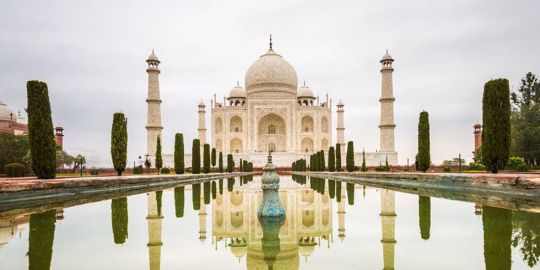
Taj Mahal — India
One of the seven wonders of the modern world, the Taj Mahal, complete with a domed central tomb and surrounding minarets, never fails to impress with its imposing yet sublime design.
Located on the southern bank of the Yamuna River in Agra, the mausoleum was built by Mughal emperor Shah Jahan to house his beloved late wife Mumtaz Mahal — a true monument to love!
Getty Images
#getty images#photographer#taj mahal#india#travel#yamuna river#agra#mughal emperor shah jahan#mumtaz mahal#mausoleum
10 notes
·
View notes
Text

17th-century Tomb of the Mughal Emperor Jahangir in Lahore, Pakistan
British vintage postcard, mailed in 1908 to Paris
#pakistan#british#sepia#century#photography#jahangir#17th-century#vintage#mailed#postkaart#mughal#paris#ansichtskarte#ephemera#carte postale#postcard#17th#postal#lahore#briefkaart#emperor#photo#1908#tomb#tarjeta#historic#postkarte
6 notes
·
View notes
Text
𝑭𝒂𝒗𝒐𝒓𝒊𝒕𝒆 𝑰𝒏𝒕𝒆𝒓𝒏𝒂𝒕𝒊𝒐𝒏𝒂𝒍 𝑯𝒊𝒔𝒕𝒐𝒓𝒊𝒄𝒂𝒍 𝑫𝒓𝒂𝒎𝒂 𝑪𝒐𝒖𝒑𝒍𝒆𝒔 (5/?)
𝑱𝒂𝒍𝒂𝒍𝒖𝒅𝒅𝒊𝒏 𝑴𝒐𝒉𝒂𝒎𝒎𝒂𝒅 𝑨𝒌𝒃𝒂𝒓, 𝑴𝒖𝒈𝒉𝒂𝒍 𝑬𝒎𝒑𝒆𝒓𝒐𝒓 𝒐𝒇 𝑯𝒊𝒏𝒅𝒖𝒔𝒕𝒂𝒏 𝒂𝒏𝒅 𝑱𝒐𝒅𝒉𝒂 𝑩𝒂𝒊, 𝑹𝒂𝒋𝒑𝒖𝒕 𝑬𝒎𝒑𝒓𝒆𝒔𝒔 𝒐𝒇 𝑯𝒊𝒏𝒅𝒖𝒔𝒕𝒂𝒏
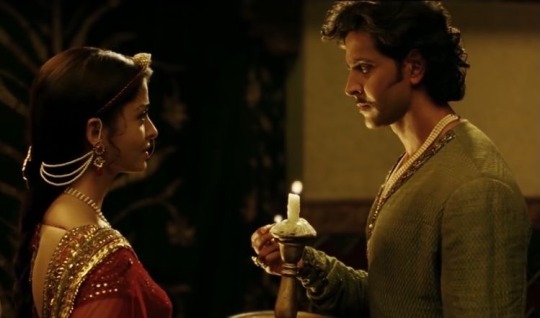

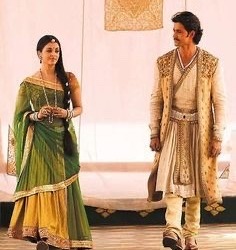
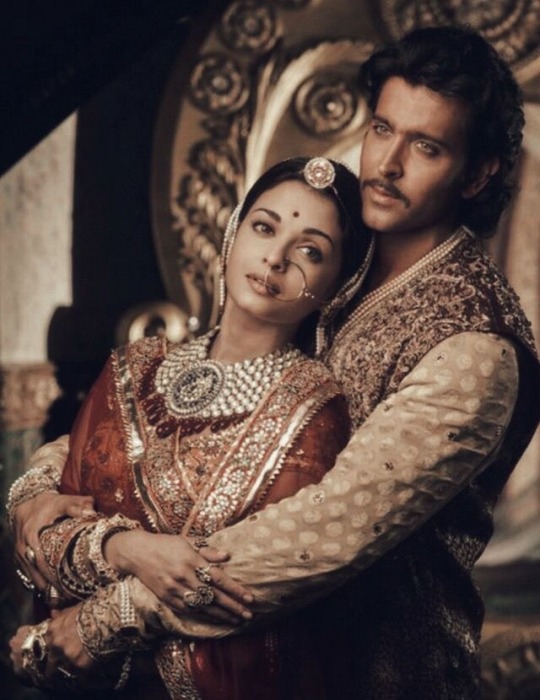
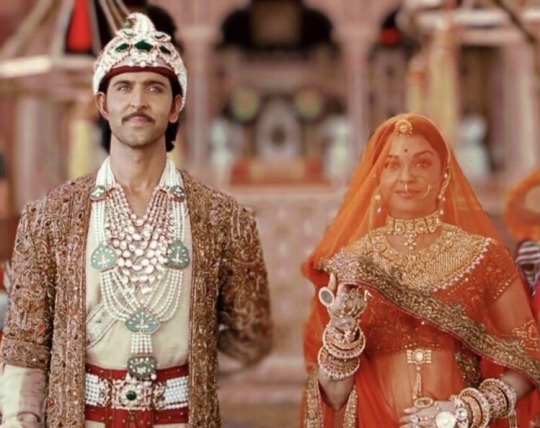
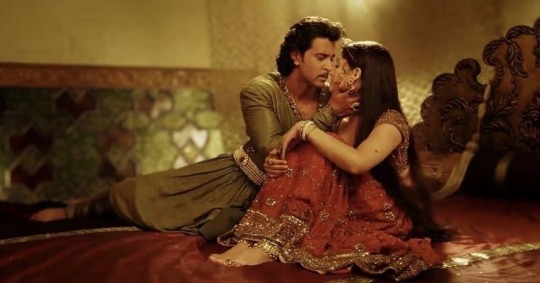
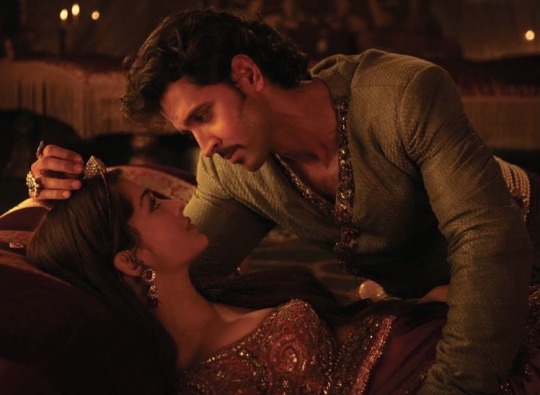

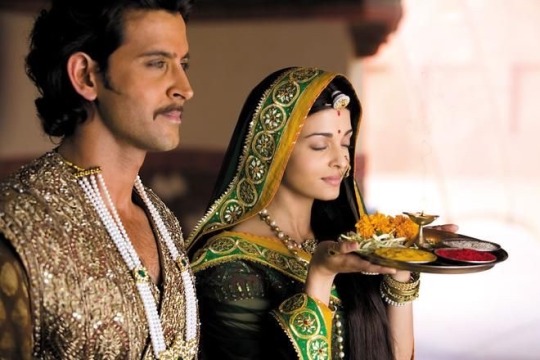
#jodha bai#jalaluddin mohammad akbar#rajput empress of hindustan#mughal emperor of hindustan#jodhaa akbar#favorite international historical drama couples
32 notes
·
View notes
Text

The day of the martyrdom of Guru Tegh Bahadur is also known as Shaheedi Diwas. Guru Tegh Bahadur had resisted forced conversions of non-Muslims to Islam during Aurangzeb's rule. He was publicly killed in 1675 on the orders of Mughal emperor Aurangzeb in Delhi. #GuruTeghBahadur #guruteghbahadursahibji #guruteghbahadurshaheedidiwas #GuruTeghBahadurMartyrdomDay Build your brand with digital media & take benefit of social media branding contact with Absolute Digital Branding. By Absolutedigitalbranding.com
Marktingstrategy #SEObrandingagency #SEO #PPC #SMO #SMM #SeoCompany #digitalmarketingcompany #socialmediamarketingcompany #absolutedigitalbranding #searchengineoptimization #advertisingagencyinmohali #facebook #twitter #marketingonline #internetmarketing #follow #digitalagency #marketingagency #motivation #digitalmarketingtips #onlinebusiness #websitedesign #marketingonline #brand #ABSOLUTEDIGITALBRANDING #BEST #PUBLIC #RELATION #AGENCY #IN #CHANDIGARH #MOHALI #PUNJAB #NORTH #INDIA #onlinebranding #branding360degree #SEObrandingagency #websiteranking #websitetrafic #Digitalmarketing #OnlineAdvertising #instagrammarketing #web #technology #marketingonline #content #instagrammarketing #advertisingagency #web #buildingrelationships #globally #customer #internetbranding-at Absolute digital Branding & Public relations.
#The day of the martyrdom of Guru Tegh Bahadur is also known as Shaheedi Diwas. Guru Tegh Bahadur had resisted forced conversions of non-Musl#He was publicly killed in 1675 on the orders of Mughal emperor Aurangzeb in Delhi.#GuruTeghBahadur#guruteghbahadursahibji#guruteghbahadurshaheedidiwas#GuruTeghBahadurMartyrdomDay Build your brand with digital media & take benefit of social media branding contact with Absolute Digital Bra#Marktingstrategy#SEObrandingagency#SEO#PPC#SMO#SMM#SeoCompany#digitalmarketingcompany#socialmediamarketingcompany#absolutedigitalbranding#searchengineoptimization#advertisingagencyinmohali#facebook#twitter#marketingonline#internetmarketing#follow#digitalagency#marketingagency#motivation#digitalmarketingtips#onlinebusiness#websitedesign#brand
2 notes
·
View notes
Text
Jodha Bai Palace - Fatehpur Sikri




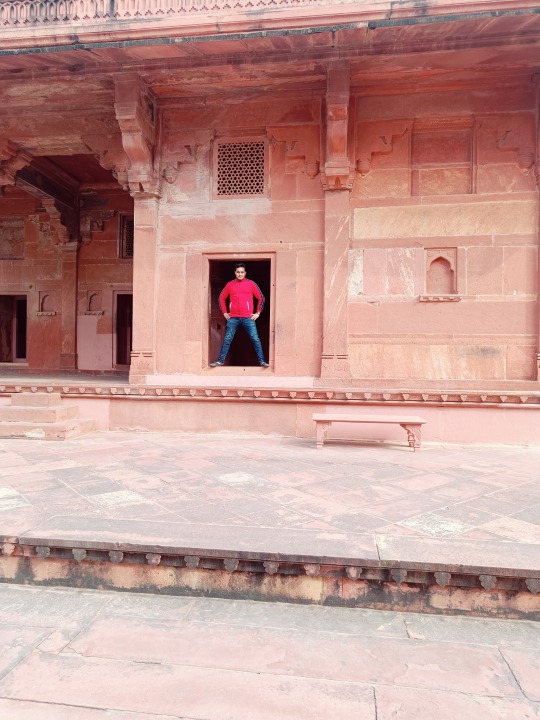
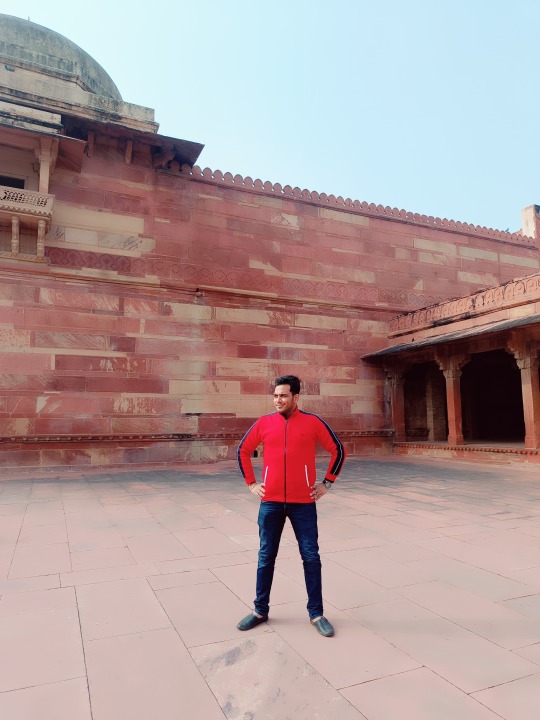
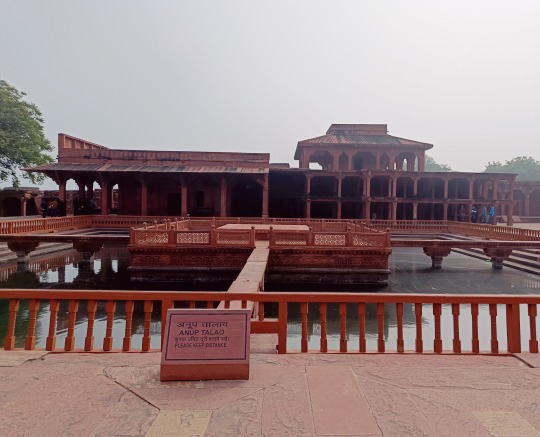
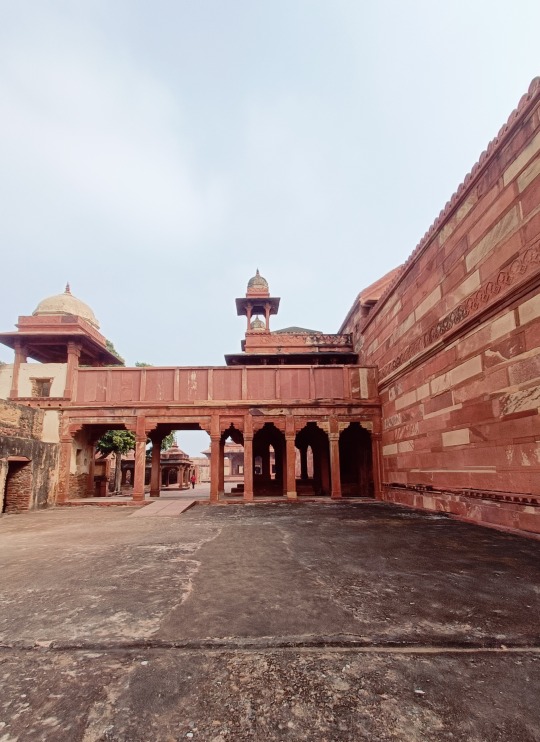


Jodha Bai Mahal' also known as 'Jodh Bai Mahal' is the largest palace in Fatehpur Sikri commissioned by Mughal Emperor Akbar in 1569 for his favourite queen consort, Mariam-uz-Zamani, commonly known as 'Jodha bai' . This Mahal is the largest complex of the zenana (palace for women belonging to the royal household ). It is a masterpiece of the fusion of Hindu and Persian architecture made with red sandstone...
.
.
.
..
..
#abhinavsr #specs #face #photooftheday #photography #hair #happy #smile #lenskart #likesforlike #blue #love #eyes #fashion #instagram #beautiful #song
#.#incredibleindia#travel#uttarpradesh#tourism#abhinavsr#photooftheday#photography#trending#red#love#fatehpursikri#akbar#jodhabai#king#queen#emperor#mughal#palace#handsome#Abhinavsr in red#Abhinav Srivastava#Abhinavsr style#Abhinavsr handsome
2 notes
·
View notes
Text
❝ ...In the early nineteenth century, the word Hindustan begins to fade from the colonial archive. The major histories of the subcontinent, written in the early parts of the nineteenth century, were now histories of "British India".
With the British East India Company (BEIC) ascendant, the Maratha or the Sikh polities did not invoke Hindustan in their political claims.
There was a brief last resurgence of Hindustan in 1857 CE. The rebels and revolutionaries who opposed the British East India Company (BEIC) rule rallied to the flag of the Mughal Sultan, Bahadur Shah Zafar. He was once again, hailed as the Shahanshah-i Hindustan (Emperor of Hindustan) - clearly there remained an idea of Hindustan.
After violently crushing the revolution, Queen Victoria took British India under her direct rule and assumed the title of Empress of India, sending Bahadur Shah Zafar to die in exile in Burma.
...And so, (as) per (the poet) Mirza Ghalib, Hindustan became the past. ❞
Source: The Loss of Hindustan | The Invention of India by Manan Ahmed Asif, Pages 1 to 2
Pictured is the one of the few photos of the aforementioned Bahadur Shah Zafar or Bahadur Shah II - the last Timurid-Mughal Sultan - after trial in court and prior to his exile to modern-day Burma, following the unsuccessful and brutally crushed Hindustani Revolt of 1857-1858 CE.
Photo Credit: The British Library
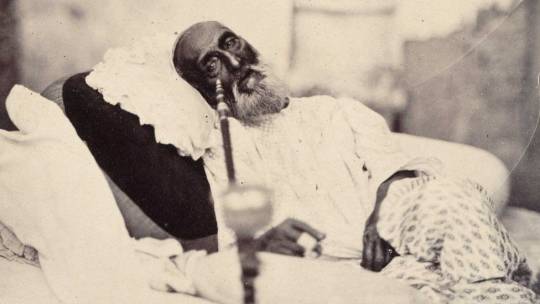
#islam#muslim#history#islamic history#history blog#hind#hindustan#indian subcontinent#india#pakistan#bangladesh#sri lanka#nepal#burma#myanmar#the british empire#the british invasion#mughal#mughal emperor#mughal empire#bahadur shah zafar
6 notes
·
View notes
Video
youtube
সম্রাট বাবর: কিভাবে প্রতিষ্ঠা করেছিলেন মুঘল সাম্রাজ্য! | Emperor Babur |...
সম্রাট বাবর: কিভাবে প্রতিষ্ঠা করেছিলেন মুঘল সাম্রাজ্য! | Emperor Babur | Mughal empire
মুঘল সাম্রাজ্যের জন্ম কিভাবে? জেনে নিন সম্রাট বাবরের ইতিহাস
বাবরের অবিশ্বাস্য জীবনকাহিনী: মুঘল সাম্রাজ্যের শুরুর অজানা গল্প!
"বাবর: মুঘল সাম্রাজ্যের প্রতিষ্ঠাতা | কীভাবে তিনি ভারতীয় উপমহাদেশের ইতিহাস বদলে দিলেন?" ১৫২৬ সালের পানিপথের যুদ্ধ থেকে শুরু করে মুঘল সাম্রাজ্যের প্রতিষ্ঠা—বাবরের জীবন ও শাসন এক অনন্য ইতিহাসের সাক্ষ্য। তিনি শুধু একজন সামরিক নেত�� নন, ছিলেন একজন দক্ষ প্রশাসক, কবি, এবং সংস্কৃতিমনস্ক ব্যক্তি। এই ভিডিওতে আমরা বাবরের শৈশব, তাঁর সংগ্রামী জীবনের গল্প, ভারতের মাটিতে তাঁর ঐতিহাসিক বিজয়, এবং মুঘল সাম্রাজ্যের ভিত্তি স্থাপনের বিস্তারিত বর্ণনা করেছি।
আপনি জানবেন: - বাবরের শৈশব এবং তাঁর চেঙ্গিস খান ও তৈমুরের বংশধর হওয়ার প্রভাব। - পানিপথের যুদ্ধ এবং আধুনিক যুদ্ধকৌশলের মাধ্যমে তাঁর ঐতিহাসিক বিজয়ের কাহিনী। - বাবরের "বাবরনামা" গ্রন্থ এবং তার ঐতিহাসিক গুরুত্ব। - বাবরের সাংস্কৃতিক অবদান, চারবাগ উদ্যানের শৈলী এবং ভারতীয় সংস্কৃতিতে তাঁর প্রভাব। - মুঘল সাম্রাজ্যের প্রতিষ্ঠায় বাবরের ভূমিকা এবং তাঁর মৃত্যুর পর সাম্রাজ্যের চ্যালেঞ্জগুলো।
**এই ভিডিওটি কেন দেখবেন?** - ভারতের ইতিহাসের সবচেয়ে গুরুত্বপূর্ণ অধ্যায় সম্পর্কে জানতে। - বাবরের বিজয়ের কৌশল এবং প্রশাসনিক দক্ষতা থেকে শিক্ষা নিতে। - ঐতিহাসিক ঘটনাগুলোর পেছনের অজানা তথ্য জানার জন্য।
**আপনার জন্য কিছু গুরুত্বপূর্ণ প্রশ্ন:** - বাবরের নেতৃত্ব কি শুধুই সামরিক দক্ষতায় সীমাবদ্ধ ছিল, নাকি তাঁর সাংস্কৃতিক ও প্রশাসনিক অবদানও সমান গুরুত্বপূর্ণ? - মুঘল সাম্রাজ্যের প্রতিষ্ঠা কি ভারতীয় ইতিহাসের দৃষ্টিকোণে একটি যুগান্তকারী ঘটনা ছিল? নীচের মন্তব্যে আপনার মতামত জানাতে ভুলবেন না।
#Babur #MughalEmpire #PanipatBattle #IndianHistory #MughalHistory #Baburnama #MughalArchitect #IndianCulture #HistoricalStory #HistoryOfIndia
**ভিডিওটি লাইক করুন, শেয়ার করুন এবং আমাদের চ্যানেলটি সাবস্ক্রাইব করতে ভুলবেন না।** পরবর্তী ভিডিওতে নতুন আরেকটি ঐতিহাসিক কাহিনী নিয়ে আমরা আসছি!
বাবর, মুঘল সাম্রাজ্য, পানিপথের যুদ্ধ, ভারতের ইতিহাস, বাবরনামা, মুঘল স্থাপত্য, মুঘল সাম্রাজ্যের প্রতিষ্ঠা, ইতিহাস, মুঘল শাসন, বাবরের বিজয়, ভারতীয় সংস্কৃতি, পানিপথের প্রথম যুদ্ধ, মুঘল সম্রাট, ঐতিহাসিক গল্প, মুঘল শাসকদের ইতিহাস, Babur, Mughal Empire, Panipat Battle, Indian History, Baburnama, Mughal Architecture, Mughal Dynasty, History of India, First Battle of Panipat, Babur Biography, Mughal Culture, Mughal Kings, Historical Stories, Indian Heritage, Mughal Emperor Babur
0 notes
Text
Exhibit 97
Arab colonialism generally adheres to the same blueprint of land theft, displacement, and genocidal violence. When Islam plants a mosque somewhere, it believes this is conquered land and it's theirs forever, no matter what Temple or Church it builds on top of.
What sets it apart, however, is that it also attempts to project its own abuses onto its victims.
Rather than acknowledge their glaringly obvious 1400-year uber-colonial history, they will invert perceptions of history and reality in an attempt to self-indigenize.
They then usurp the cultures, stories, and legacies of indigenous peoples for themselves (but only the convenient parts - you'll never see Palestinians claim Judas) and disenfranchise the people they stole it from.
They will furiously deny that their ancestors were, in fact, colonizers who conquered their way on land on which they now occupy. Instead, they will frame themselves as native peoples who simply embraced Arab identity/converted to Islam, while the actual indigenous peoples are framed as nothing more than a pathetic band of rejects and cosplayers whose ancestors either never lived on the land to begin with, or were rightfully cast out (or have been cast out for so long that they have lost all right to return).
I can think of few other colonizers that do this. And because this behavior deviates from what we typically understand as "baseline colonialism", it becomes immeasurably harder to identify and more complex to counter.
#prev tag ->#they do the same shit in india#mughal emperors destroyed so many temples and built mosques atop them#perfectly said#israel palestine conflict
647 notes
·
View notes
Text
Nurpur Fort: A Chronicle of Devotion, Dynasty, and Divine Beauty in Himachal Pradesh
The heartland of Himachal Pradesh unfolds tales of ancient fortresses, each echoing the whispers of history. Nestled amidst the spectacular landscapes, Nurpur Fort stands as a testament to bygone eras, a silent witness to the interweaving of love, power, and divine connection. Legacy of Nurpur Fort: Situated in the city of Nurpur, towards the northwest of Kangra, this fort derives its name from…

View On WordPress
#Chakki rivulet#Dhameri Fort#Jhabbar Khud#King Jhet Pal#Lord Krishna#mar dynasty of Delhi#Meera Bai&039;s#Mughal emperor Jahangir#North-West of Kangra#Nurjahan#Nurpur Fort#Pathania clan of Rajputs#Raja Basu
1 note
·
View note
Text

#sign#bilingual#English-Urdu#hunting resort of the Emperor Jehangir#Jahangir#Hiran Minar#Sheikhupura#Pakistan#Mughal architecture
0 notes
Text
#Gyanvapi mosque#Hindu temple#petitioners#Varanasi#archaeological survey#ASI report#Muslim lawyers#Hindu petitioners#Vishnu Shankar Jain#Aurangzeb#Mughal emperor#Supreme Court#Ayodhya mosque#Lord Ram temple#Narendra Modi#sectarian riots#Hindu reawakening#minority group#Hindu majority India#communal violence#religious character#places of worship#Indian law#Ayodhya shrine#Supreme Court hearings.
0 notes
Photo
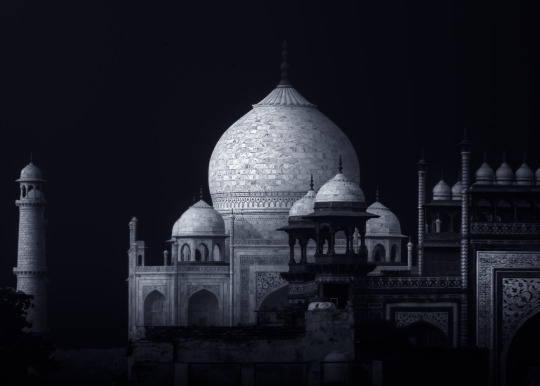
Taj Mahal
The Taj Mahal is an ivory-white marble mausoleum on the south bank of the Yamuna river in the Indian city of Agra. It was commissioned in 1632 by the Mughal emperor, Shah Jahan (reigned from 1628 to 1658), to house the tomb of his favourite wife.
Photographer: Saajan Manuvel
#saajan manuvel#photographer#taj mahal#travel#monochrome#mausoleum#yamuna river#india#agra#mughal emperor#shan jahan#culture
16 notes
·
View notes
Text

17th-century Tomb of the Mughal Emperor Jahangir in Lahore, Pakistan
Pakistani vintage postcard, mailed to Paris
#carte postale#jahangir#sepia#photo#tomb#postkarte#tarjeta#ansichtskarte#century#postkaart#ephemera#pakistani#postcard#vintage#17th-century#lahore#emperor#17th#historic#mailed#postal#paris#briefkaart#mughal#pakistan#photography
0 notes